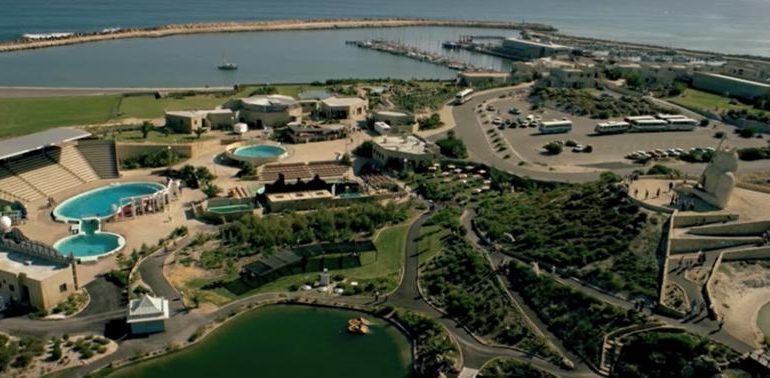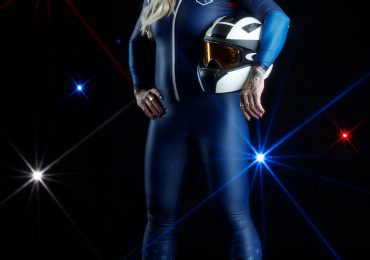ATLANTIS Marine Park was opened “for the enrichment of mankind” back in 1981 but has sat abandoned for the last 34 years.
Built in the outer suburb of Two Rocks at the northern edge of Perth, Australia, it was the first element in turning the area into a premier leisure recreation region.
By-SA 2.0Atlantis Marine Park has been left abandoned for 34 years[/caption]
By-SA 2.0A giant sculpture of King Neptune covered in graffiti before it was restored in 2015[/caption]
By-SA 2.0The abandoned theme park has been listed as a national heritage site that people can walk through[/caption]
The attraction was built in the hope that Perth’s rapid expansion would be accompanied by an equal growth in tourism
But just nine years after it thrust its doors open to the booming tourism industry, the theme park was forced to close down due to financial difficulties and has remained empty ever since.
All that’s left now are numerous rotting pools and strange, ocean-themed sculptures including the disembodied head of Jacques Cousteau – a French naval officer and oceanographer.
There is also a giant sculpture of Neptune, whose creepy beaming head towers over his crumbled kingdom.
Standing at 32ft tall, the Roman god of water and sea was built by local artist Mark Le Buse and can still be seen holding his trident.
Following the park’s closure he was quickly fenced off after being covered in graffiti, but was eventually restored after being heritage listed by the Western Australian Heritage Council in 2006.
In 2015, volunteers refurbished the King Neptune sculpture and reopened the area to visitors, who are able to wander round what’s left of the site.
Last year, the King Neptune sculpture was added to the State Register of Heritage Places in recognition of Sun City’s place as the state’s first private investment project.
Elsewhere across the theme park are a number of vacant swimming pools.
Not only were these enjoyed by people, but also animals.
Six months before the park was opened, seven bottlenose dolphins were caught locally and trained as performance animals for the next ten years.
But after the park failed to be the money maker its creators had hoped, the birth of three more dolphins in captivity proved to be the final nail in the coffin.
Regulations for dolphin enclosures had changed and legislation required the park to build a larger area for the dolphins.
Along with an already-dwindling cash flow, however, the park could not afford to do so and was forced to close in 1990.
But part of the park’s closing was an unusual agreement with research scientist and marine park veterinarian Dr. Nick Gales.
The owners of the park, Tokyu Corporation of Japan, agreed to fully fund the release of the animals to the wild, provided it would end their financial commitment to the dolphins
The dolphins were fully released into the wild in January 1992 but problems soon arose.
Some of the dolphins lost a lot of weight, while three of them were recaptured and returned to the sea pen.
The fate of the other dolphins is unclear but occasional reports do come in from local fishermen who claim to have run into unusually friendly dolphins in the area.
Elsewhere, a creepy abandoned water park in South Africa has been left to rot after being buried in sand.
The Macassar Beach Pavilion in Cape Town was once a bustling hub in the community but is now a shadow of its former self.
And a spooky theme park once considered to be the best and biggest attraction in Venezuela has also been left to rot.
Abandoned, looted and torn apart – Diversions Grano de Oro has become known as a ghostly “cemetery of attractions“.
By-SA 2.0A sculpture of dolphins has eroded away in the years since being left behind[/caption]
By-SA 2.0Overgrown vegetation can be found all across the attraction[/caption]
Three people enjoying the theme park when it was open between 1981-1990
Leave a comment








